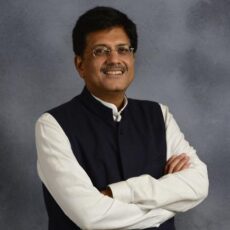
As India Eliminates Energy Poverty, Can It Also Fight Climate Change?
Piyush Goyal, India’s minister of railways and coal and past minister of renewable energy, discusses his country’s efforts to provide universal electricity access while limiting power sector pollution and climate impact.
India is home to the world’s most ambitious electrification effort. By the spring of 2019, India’s government aims to connect the 30 million rural Indian homes that remain without power to the electric grid, as part of its broader effort to raise living standards and promote economic development. By 2030, India’s demand for electricity will triple as its cities and middle class grow.
New demand for electricity will be met by a mix of new renewable generation and coal-fired power. Emissions will rise as a result, highlighting the challenge India’s government faces in addressing air pollution and climate impacts at the same time it strives to eliminate energy poverty.
In this episode of Energy Policy Now, Piyush Goyal, India’s minister of railways, coal, and corporate affairs, discusses the potentially conflicting aims of providing universal electricity access and addressing environmental challenges. Until 2017, Goyal was minister of power, coal, new and renewable energy.
Minister Goyal has been selected as the 2018 recipient of the Kleinman Center’s annual Carnot Prize in recognition of his contributions to energy policy. He will officially receive the prize in New Delhi.
Piyush Goyal
Minister of Railways and Coal, Government of IndiaPiyush Goyal is a member of India’s upper house of parliament and serves as the minister of railways and coal. He is the 2018 recipient of the Carnot Prize for distinguished contributions to energy policy.
Andy Stone
Energy Policy Now Host and ProducerAndy Stone is producer and host of Energy Policy Now, the Kleinman Center’s podcast series. He previously worked in business planning with PJM Interconnection and was a senior energy reporter at Forbes Magazine.


